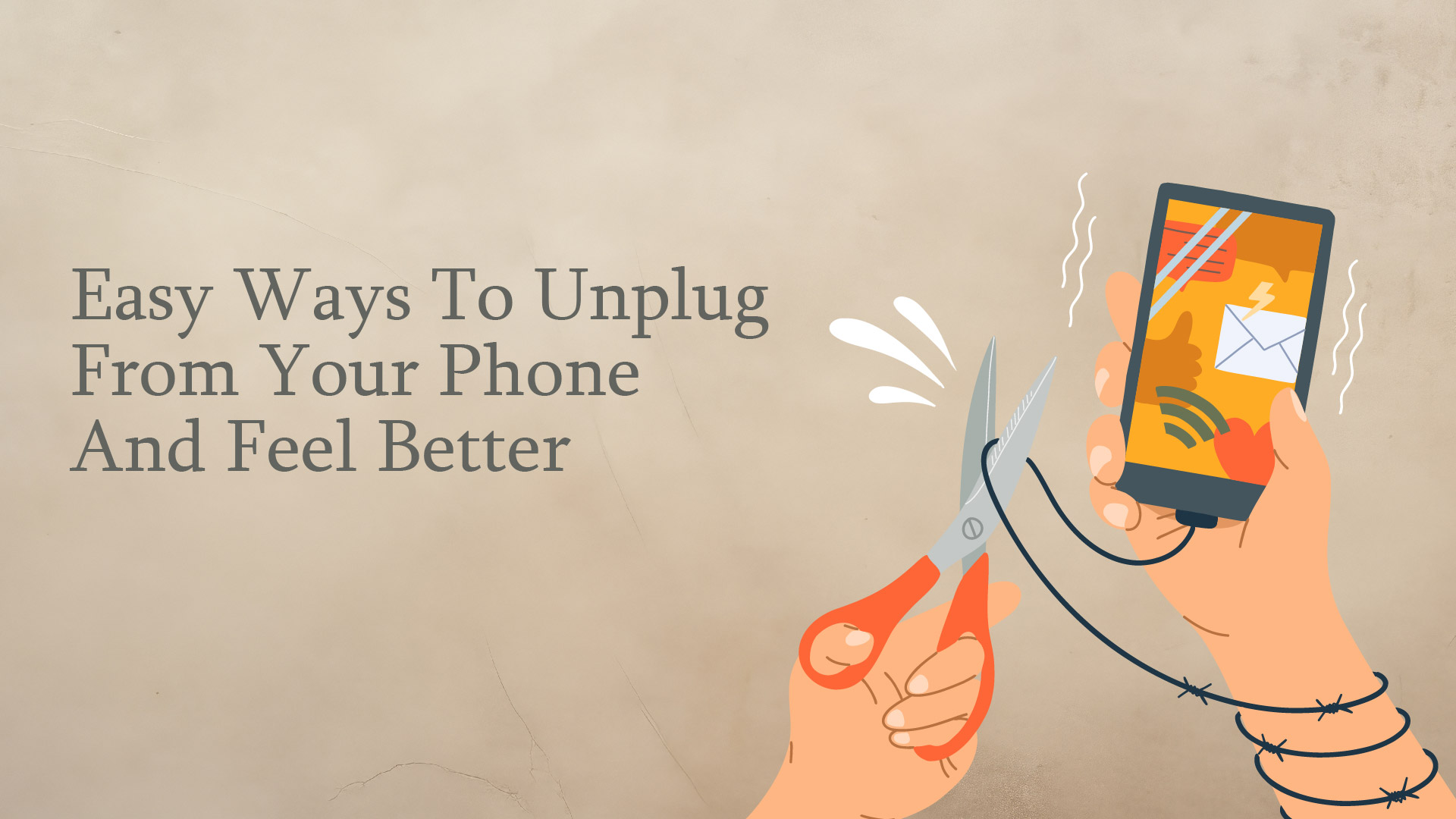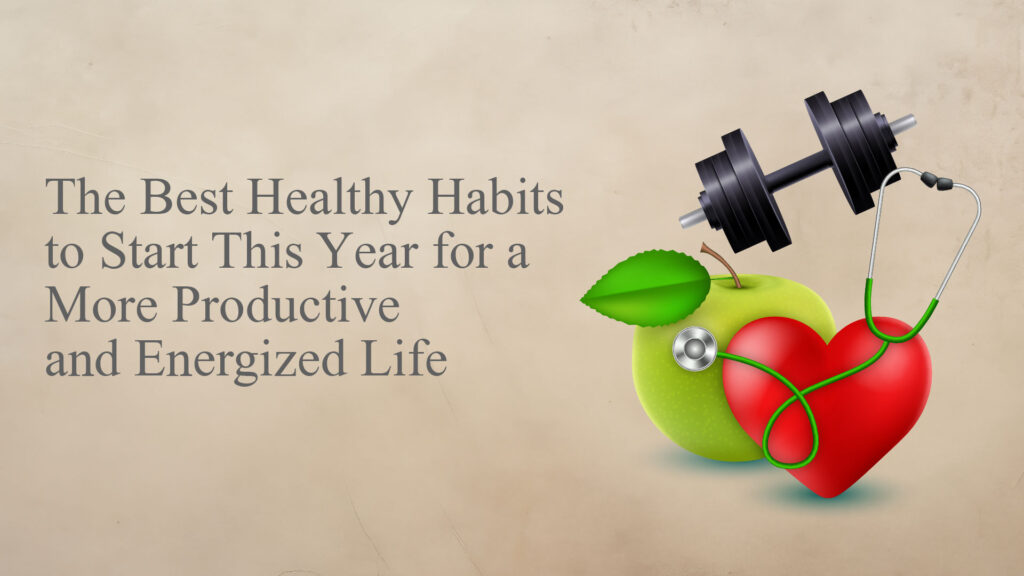
In today’s hyper-connected world, our phones rarely leave our hands. Whether it’s checking emails before breakfast, scrolling through social media during lunch, or binge-watching videos at night, screens have quietly taken over our daily lives. According to DataReportal’s 2024 Digital Report, the average screen time for adults in the U.S. is over 7 hours per day — almost half of our waking hours.
While smartphones keep us informed and connected, too much screen time can lead to stress, poor sleep, and reduced focus. Over time, this can even impact our relationships and mental health. That’s where the idea of unplugging from your phone comes in — not as a punishment, but as an act of self-care.
In this guide, you’ll discover easy, practical ways to reduce screen time, break the cycle of phone addiction, and reclaim your mental space. We’ll explore digital detox benefits, share simple self care activities, and give you expert-backed relaxation techniques to help you feel calmer, more productive, and happier.
Why It’s So Hard to Unplug
If you’ve ever promised yourself “just five more minutes” on your phone only to look up an hour later, you’re not alone. Smartphones are designed to keep us hooked. According to Harvard Health Publishing, constant notifications and endless scrolling trigger the brain’s dopamine reward system, creating habits that are hard to break.
This “always-on” lifestyle fuels the fear of missing out (FOMO) and makes it harder to truly relax. Over time, your brain begins to expect these constant micro-hits of stimulation, leading to phone addiction.
You might need a phone detox if you notice:
- Checking your phone immediately after waking up or before sleeping
- Feeling anxious or restless when your phone isn’t nearby
- Losing track of time while scrolling
- Ignoring in-person conversations for online interactions
A Pew Research Center survey found that 31% of U.S. adults say they are “almost constantly” online. That constant connection may seem harmless, but it can quietly chip away at your ability to focus, sleep well, and be present.
Breaking the cycle starts with awareness. Once you recognize how deeply your phone habits are wired into your day, you can take small but powerful steps toward reducing screen time and enjoying the many benefits of a digital detox.
Digital Detox Benefits You’ll Notice
Unplugging from your phone isn’t just about avoiding distractions — it’s about reclaiming your time, attention, and mental well-being. Even small changes in your daily screen habits can create powerful results. According to the American Psychological Association, reducing screen time can improve mood and lower stress levels within just one week.
Here are some of the most notable digital detox benefits you might experience:
1. Mental Clarity & Reduced Anxiety
Too much time online can lead to information overload. Stepping away helps your brain rest and process thoughts more clearly.
2. Improved Sleep Quality
The blue light from screens suppresses melatonin, the hormone that regulates sleep. A phone-free evening routine can lead to deeper, more restorative rest.
3. Better Focus & Productivity
Without constant pings and notifications, your brain can stay in “deep work” mode longer, boosting efficiency.
4. Stronger Real-Life Connections
Being fully present during conversations strengthens relationships and reduces feelings of loneliness.
Table: Before vs. After a Digital Detox
| Benefit Area | Before Detox | After Detox |
| Sleep Quality | Restless nights, late-night scrolling | Longer, uninterrupted sleep cycles |
| Focus & Productivity | Easily distracted, constant multitasking | Sustained focus, improved task completion |
| Mental Health | Heightened anxiety, constant “on-edge” feeling | Calmer, more mindful mindset |
| Social Connections | Half-attentive conversations, digital interruptions | More engaged, deeper personal connections |
By making time for self care activities like reading, walking, or practicing relaxation techniques, you’re not just reducing screen time — you’re investing in your overall wellness. The more intentional you are with your phone habits, the more you’ll notice these benefits becoming part of your healthy living routine.
Easy & Practical Ways to Unplug From Your Phone
If you want to reduce screen time and break free from phone addiction, the trick isn’t to throw your device away — it’s to create small, consistent habits that help you stay in control. Here are proven, easy-to-follow strategies you can start today.
Create a Phone-Free Evening Routine
Your night-time habits directly impact your sleep and mental health. A phone-free evening routine is one of the most effective phone detox tips.
- Stop using your phone at least 60 minutes before bedtime.
- Replace scrolling with self care activities like reading a physical book, journaling, or listening to calming music.
- Dim the lights and avoid blue light exposure to improve melatonin production.
Use Technology to Beat Technology
Ironically, your phone can help you spend less time on it. Use built-in tools to track and limit usage.
- Set daily app limits for social media and streaming platforms.
- Turn on Do Not Disturb during focus hours.
- Use apps like Forest, Freedom, or Screen Time to block distractions.
Stat: According to RescueTime, people check their phones up to 58 times a day on average — often without realizing it.
Try Mini Digital Detox Sessions
You don’t have to commit to a week-long break right away. Start with small “no-phone” blocks.
- Pick one day each week for an offline morning or phone-free afternoon.
- Go for a nature walk, cook a meal, or explore a hobby.
- Gradually extend these periods until you feel less dependent on constant notifications.
Replace Phone Time With Self-Care Activities
Every minute spent off your phone is a chance to invest in yourself.
- Relaxation techniques: deep breathing, meditation, yoga.
- Creative hobbies: painting, gardening, or cooking.
- Physical wellness: workouts, stretching, or dance sessions.
By intentionally choosing self care ideas over passive scrolling, you’ll build habits that support healthy living.
Build Real-World Hobbies & Social Connections
Many people turn to their phones for connection — but nothing beats face-to-face interaction.
- Plan regular meetups with friends or family.
- Join clubs, sports teams, or volunteer groups.
- Focus on wellness tips for daily life that involve real-world engagement.
Bonus Tip: Keep a small notepad for ideas, thoughts, or to-dos so you don’t feel tempted to “just check” your phone.
These strategies aren’t about cutting out technology completely — they’re about finding balance. When you consciously choose when and how to use your phone, you gain more control over your time, energy, and mental space.
Overcoming Common Challenges in Phone Detox
Even with the best intentions, it’s normal to hit roadblocks when trying to unplug from your phone. The key is anticipating these challenges and having strategies ready.
Challenge 1: Feeling Bored Without Your Phone
When you’re used to constant stimulation, boredom feels uncomfortable. Replace scrolling with engaging self care activities — reading, journaling, cooking, or even a short walk.
Tip: Keep a “phone-free activities list” handy so you always know what to do instead.
Challenge 2: The Pressure to Respond Instantly
Friends, family, and coworkers may expect quick replies. Clearly communicate your new boundaries. Let them know you’re limiting screen time for your well-being.
Fact: According to a Harvard Health report, setting clear tech boundaries reduces stress and improves relationships.
Challenge 3: Work Notifications & Urgent Emails
If your job requires phone access, separate work and personal use. Turn off non-essential notifications and schedule specific “check-in” times.
Pro Tip: Use Do Not Disturb during focus hours and allow only essential calls through.
Challenge 4: Relapsing Into Old Habits
Phone detox isn’t a one-time event — it’s an ongoing habit. Track your average screen time weekly and celebrate small wins, like reducing it by 30 minutes.
By preparing for these challenges, you’ll make your digital detox not just possible, but sustainable — turning phone-free time into a lasting part of your healthy living routine.
Expert Insights & Statistics
The impact of excessive phone use isn’t just anecdotal — research from leading organizations confirms its effects on our mental, physical, and emotional well-being.
- Pew Research Center reports that 31% of U.S. adults say they are “almost constantly” online.
- Harvard Health Publishing notes that excessive screen time is linked to poor sleep, eye strain, and increased anxiety.
- The American Psychological Association (APA) found that reducing daily screen time by just one hour can significantly improve mood and lower stress within a week.
Stat Highlight: A RescueTime study revealed that people check their phones 58 times per day on average, with half of those checks happening during work hours — often out of habit, not necessity.
Table: Average Daily Screen Time by Age Group (Source: DataReportal 2024)
| Age Group | Average Screen Time (per day) |
| 16–24 years | 8 hrs 39 mins |
| 25–34 years | 7 hrs 25 mins |
| 35–44 years | 6 hrs 55 mins |
| 45–54 years | 5 hrs 42 mins |
| 55+ years | 4 hrs 19 mins |
These findings highlight why digital detox benefits are so valuable. By intentionally working to reduce screen time, you’re not only protecting your mental health but also improving productivity, focus, and quality of life.
Final Thoughts
In a world that’s always connected, choosing to unplug from your phone is a powerful act of self-care. It’s not about rejecting technology but about using it intentionally, so it serves you — not the other way around.
By making small changes, such as creating a phone-free evening routine, practicing relaxation techniques, and setting clear app limits, you can experience the many digital detox benefits — from better sleep to improved focus and deeper real-life connections.
Your phone will still be there when you need it, but your mind, body, and relationships will thank you for giving them the attention they truly deserve. If you’re looking for more wellness tips for daily life and inspiring ways to live healthier, explore our other guides here on The Inspire Life. Start small, be consistent, and enjoy the calm that comes from living more offline.
Frequently Asked Questions (FAQs)
Q: What is the best way to start unplugging from your phone?
A: Start by tracking your average screen time and setting small, realistic goals to cut back. Even 15–30 minutes less per day can make a difference.
Q: How long should a digital detox last?
A: There’s no “perfect” length. Some people feel refreshed after a weekend, while others commit to a full week. The key is consistency.
Q: Can reducing screen time improve mental health?
A: Yes. Studies from the American Psychological Association show that lowering daily screen use can reduce anxiety, improve mood, and help with better sleep.
Q: What are some relaxing activities to replace phone time?
A: Try self care activities like reading, walking, meditation, or creative hobbies. These not only reduce phone addiction but also support overall wellness.
Q: Is it possible to stop phone addiction completely?
A: Breaking the habit takes time. While you may not eliminate phone use entirely, you can regain control through phone detox tips like app limits, no-phone zones, and planned tech breaks.


